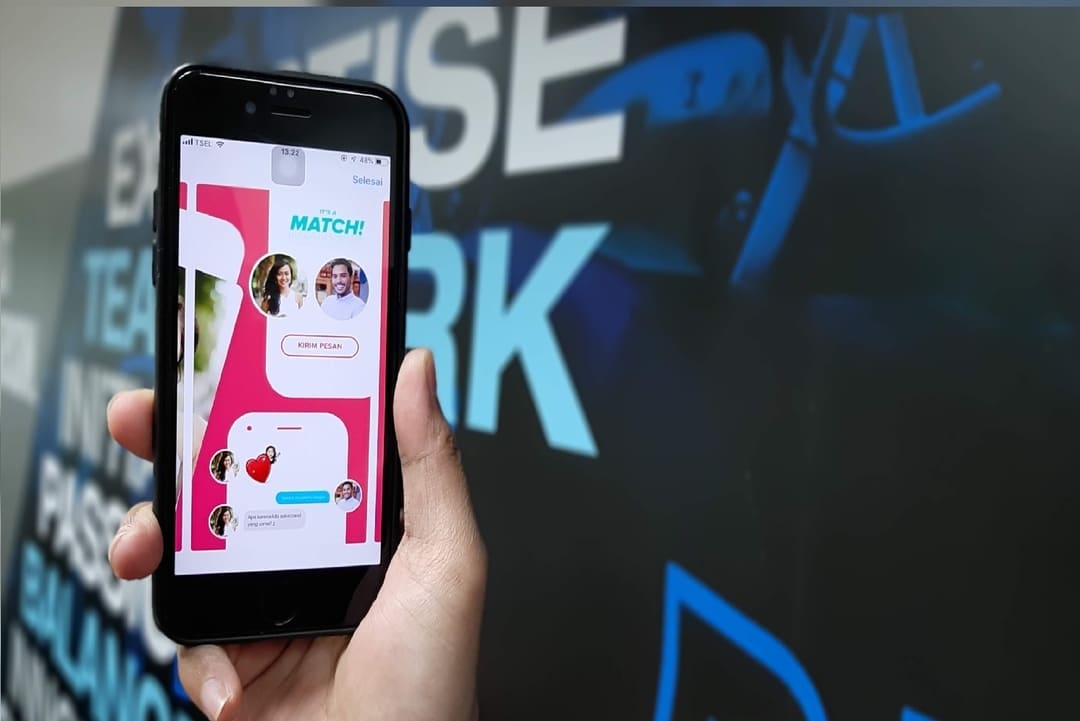
The evolution of online dating (going from a taboo topic to a cultural norm) has been interesting to observe. After reading through a couple of studies, I started to see the spillover impact that online dating has had on how we sell.
The Growth of Online Dating
Here’s a look at how online dating has skyrocketed over the past ten years. Early estimates for 2019 indicate that the number of people who met online could be as high as 65%-75%.

The rise in online dating is likely driven by an increase in smartphone penetration, 81% of people older than 13 own a smartphone in the U.S. (as of 2016).

Despite this growth, a lot of data related to online dating has stayed private for obvious reasons. The best known data source on behaviors related to online dating comes from a series of blogs created by the founders of OKCupid. OKCupid is an online dating platform that was fairly popular in 2006 to 2011 and sold to Match.com (the company that also owns Tinder) for $50M. Upon the acquisition, the blog posts were also removed as the posts (ironically) critiqued the idea of paying for online dating.
By going through the blog and looking at other industry articles, I found a couple of interesting areas where we’ve seen a spillover impact from online dating.
Social Selling
The idea of forming relationships has translated at a professional level as chatting on social networks (LinkedIn, Facebook, Twitter, and Instagram) is a common way of booking sales meetings (especially in the tech industry). Here are some lessons from online dating that apply to social selling:
Brevity is Key
“If you’re the kind of person who spends a little more time reading a profile and thinking about your message, say, 10 minutes, then the optimal length goes up a few words (to 270 characters), but, still, short is better.”

This is no different when you’re reaching out to people at a professional level. During my time at GrowthGenius, it became very clear that short and frequent(ish) messages resonated better than long messages on LinkedIn. I’ve also seen this behavior translate to emails - where the subject and the first line of an email had to catch the user’s attention to have a strong open/reply rate.
Be Literate
“Netspeak, bad grammar and bad spelling are huge turn-offs. Our negative correlation list is a fool’s lexicon: ur, u, wat, wont, and so on. These all make a terrible first impression.”

Whether it’s a typo or used to create an ‘informal’ conversation, the data clearly shows that using bad grammar won’t help your case. If this is at all a problem for you, I’d recommend using the Grammarly Chrome extension, which should help you avoid the most common mistakes.
Use an Unusual Greeting
“The top three most popular ways to say “hello” were all actually bad beginnings. Even the slangy holla and yo perform better, bucking the general “be literate” rule. In fact, it’s smarter to use no traditional salutation at all (which earns you the reply rate of 27%) and just dive into whatever you have to say than to start with hi.”

This was an interesting insight that I learned while the team was experimenting with different messaging styles at GrowthGenius. A unique greeting and the use of GIFs almost always get the attention of prospects who may be ghosting you.
Bring Up Specific Interests
“Talking about specific things that interest you or that you might have in common with someone is a time-honored way to make a connection, and we have proof here that it works. We’re presenting just a smattering: in fact, every “niche” word that we have significant data on has a positive effect on messaging.”

In prospecting, we call this personalization. Whether you’re talking about yourself or trying to show that you’ve done your research on a prospect, it always helps to be specific. A lot of people can see through the instance when you’re using a ‘catch-all’ statement to avoid personalization.
The Demise of the Fragrance Market
Growing up, it was quite common to see people buy (and business advertise) perfume as a gift. Recently, that behavior started to change. A recent Bloomberg study shows us how the mass (affordable) fragrance market has started to decline significantly in North America.

On the other side, we’ve seen a drastic growth in cosmetics and photography products. A recent experiment by H&M to sell beauty products in the UK was a huge success with sales increasing by 94.8% from 2018 to 2019.

The timing of this falls in line with the growth of online dating. “Initial potential mate matching is increasingly visual, leading to secular demand growth in cosmetics and photography products, while fragrance sales remain flat because their value is irrelevant in the current market.”
Conclusion
While it’s clear that online dating is here to stay, I’m curious to see how trends/behaviors that stem from online dating translate to the rest of our lives.
One area that hasn’t received a lot of attention is the impact that online dating has on the demographics of city vs. non-city areas. The idea of living in the city may become a necessity for the simple fact that people are significantly more likely to find their potential partner (given a higher population density in cities vs. rural/suburban areas).
***Looking to create your love story? Join the other couples who have dated and married through myTamilDate.com!***

























